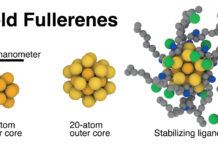An international team of researchers has developed a low-cost sensor made from semiconducting plastic that can be used to diagnose or monitor a wide range of health conditions, such as surgical complications or neurodegenerative diseases.
 The sensor can measure the number of critical metabolites, such as lactate or glucose, that are present in sweat, tears, saliva or blood, and, when incorporated into a diagnostic device, could allow health conditions to be monitored quickly, cheaply and accurately. The new device has a far simpler design than existing sensors and opens up a wide range of new possibilities for health monitoring down to the cellular level. The results are reported in the journal Science Advances.
The sensor can measure the number of critical metabolites, such as lactate or glucose, that are present in sweat, tears, saliva or blood, and, when incorporated into a diagnostic device, could allow health conditions to be monitored quickly, cheaply and accurately. The new device has a far simpler design than existing sensors and opens up a wide range of new possibilities for health monitoring down to the cellular level. The results are reported in the journal Science Advances.
The device was developed by a team led by the University of Cambridge and King Abdullah University of Science and Technology (KAUST) in Saudi Arabia. Semiconducting plastics such as those used in the current work are being developed for use in solar cells and flexible electronics, but have not yet seen widespread use in biological applications.
“In our work, we’ve overcome many of the limitations of conventional electrochemical biosensors that incorporate enzymes as the sensing material,” said lead author Dr Anna-Maria Pappa, a postdoctoral researcher in Cambridge’s Department of Chemical Engineering and Biotechnology. “In conventional biosensors, the communication between the sensor’s electrode and the sensing material is not very efficient, so it’s been necessary to add molecular wires to facilitate and ‘boost’ the signal.”
To build their sensor, Pappa and her colleagues used a newly-synthesized polymer developed at Imperial College that acts as a molecular wire, directly accepting the electrons produced during electrochemical reactions. When the material comes into contact with a liquid such as sweat, tears or blood, it absorbs ions and swells, becoming merged with the liquid. This leads to significantly higher sensitivity compared to traditional sensors made of metal electrodes.
Read more: Plastic sensors could monitor a range of health conditions
Image courtesy of: cam.ac.uk
















